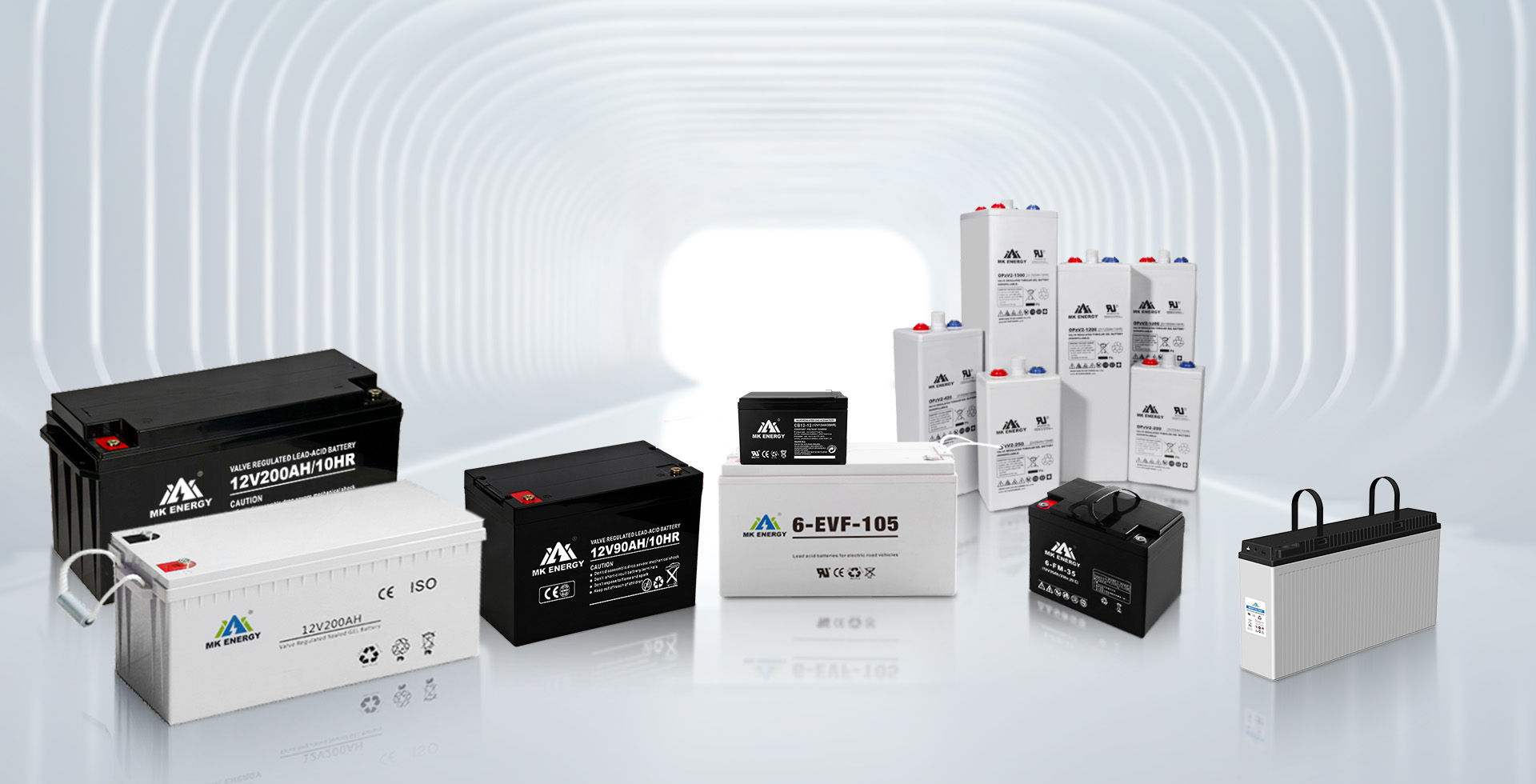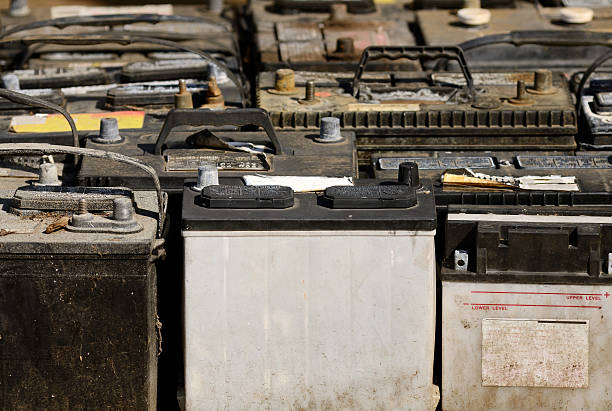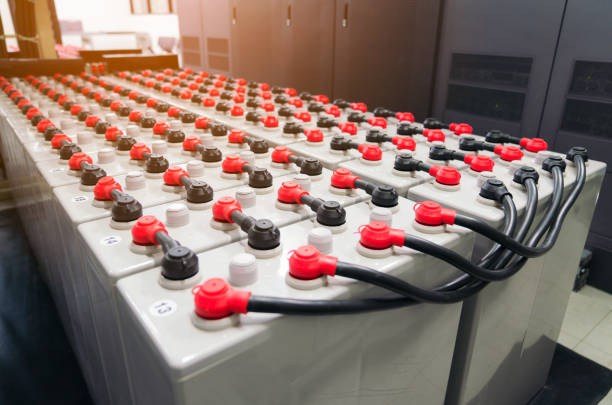In the modern world, as industries, governments, and consumers place increasing importance on environmental sustainability, the need for more eco-friendly solutions has never been greater. The lead-acid battery, one of the oldest and most widely used types of rechargeable batteries, is no exception. While these batteries have powered everything from vehicles to backup systems for over a century, their environmental impact has often been a point of concern. However, with advancements in technology, innovation, and regulatory frameworks, lead-acid batteries are undergoing a green transformation.
At MK, we are committed to advancing these changes and driving the development of environmentally friendly lead-acid batteries. By focusing on the use of sustainable materials and improving recycling technologies, we are actively contributing to the global push for more eco-conscious energy solutions.
The Environmental Impact of Lead-acid Batteries
Lead-acid batteries have long been an integral part of various industries, especially in automotive, renewable energy storage, and industrial backup power. However, their environmental impact—particularly in relation to lead and sulfuric acid—has raised concerns. Improper disposal and handling of lead-acid batteries can lead to toxic lead contamination, posing serious health risks to both humans and wildlife. Additionally, the extraction and use of raw materials like lead and acid contribute to environmental degradation and resource depletion.
Given these challenges, there has been a strong push to mitigate the environmental impact of lead-acid batteries through more sustainable practices. This push is fueled not only by stricter environmental regulations but also by an increasing global awareness of the need to transition to greener, more sustainable technologies.
Environmentally Friendly Materials in Lead-acid Batteries
One of the most significant ways to reduce the environmental footprint of lead-acid batteries is by using more environmentally friendly materials in their construction. While lead remains a core component of lead-acid batteries, advancements in material science have led to the development of more sustainable alternatives that reduce toxicity and improve efficiency.
Lead-Free Alternatives: Researchers and manufacturers are increasingly exploring lead-free alternatives for certain components of the battery, such as the grid material. For instance, tin, calcium, and other alloys are being studied and tested to replace lead in various battery components. These alternatives reduce the environmental impact of battery manufacturing, particularly in terms of lead extraction and waste management.
Improved Lead Alloys: In current lead-acid battery technology, lead is often alloyed with other metals like calcium and antimony to improve battery performance. However, the use of these metals can increase the battery’s environmental impact. Recent developments have focused on reducing or eliminating antimony in favor of more eco-friendly options like calcium or even exploring lithium-based alternatives. This shift minimizes potential contamination risks while improving battery longevity and overall performance.
Sustainable Electrolytes: The electrolyte, typically sulfuric acid, is another component that presents challenges when it comes to battery disposal. In some modern lead-acid batteries, there are efforts to use more environmentally friendly acid formulations or neutralize the sulfuric acid in ways that reduce harm when the battery reaches the end of its lifecycle. Innovations in gelled or absorbed glass mat (AGM) batteries, where the electrolyte is immobilized, can also minimize leaks and enhance safety during both use and disposal.
Recycled Lead: A key strategy in reducing the environmental impact of lead-acid batteries is the use of recycled lead. The recycling of lead from spent batteries not only reduces the demand for new lead but also ensures that hazardous materials are safely processed and reused. At MK Energy, we are proud to use recycled lead in our battery manufacturing process, ensuring that our products adhere to the highest sustainability standards.
Advancing Recycling Technologies
Recycling plays a pivotal role in the green transformation of lead-acid batteries. With the global shift towards a circular economy, enhancing the recycling process of lead-acid batteries is crucial to minimizing environmental impact. Improved recycling technologies are enabling the recovery of valuable materials from used batteries, ensuring that these resources are returned to the production cycle rather than being discarded as waste.
Closed-Loop Recycling
One of the most promising advancements in lead-acid battery recycling is the implementation of closed-loop recycling systems. In these systems, spent lead-acid batteries are collected, processed, and transformed into new batteries with minimal loss of material quality. Lead, sulfuric acid, and other components are purified and reused, significantly reducing the need for raw material extraction and energy-intensive processes.
Improved Recycling Efficiency
Advances in mechanical and chemical recycling processes have made it possible to extract lead and other materials with greater efficiency and lower environmental impact. Techniques such as hydrometallurgical and pyrometallurgical processes allow for the selective recovery of lead from battery components, reducing the environmental cost of extraction and minimizing the carbon footprint of the recycling process.
Sustainable Battery Disposal Programs
An integral part of responsible recycling is ensuring that used lead-acid batteries are properly disposed of. Many governments and industry bodies have introduced programs to collect, recycle, and dispose of batteries safely. At MK, we support and participate in these initiatives, working with local authorities and stakeholders to ensure that our products are recycled in accordance with the highest environmental standards.
Reducing Lead Contamination
While lead contamination remains a concern, recent innovations in battery recycling are designed to minimize exposure and ensure that lead is handled safely. Through state-of-the-art filtration and waste treatment systems, toxic emissions are minimized, and the risk of lead contamination is significantly reduced. These technologies are helping to make lead-acid batteries a more sustainable energy solution.
The Role of MK in Sustainable Development
At MK Energy, we are committed to embracing sustainability as a core value. We continuously strive to improve our products, processes, and practices to meet the growing demand for environmentally friendly energy solutions. Our focus on integrating eco-friendly materials and cutting-edge recycling technologies into our lead-acid batteries is a testament to our dedication to reducing our environmental footprint.
We believe that the green transformation of lead-acid batteries is not just about meeting regulatory requirements or responding to market demands—it’s about taking responsibility for the future of our planet. By innovating in materials science and recycling processes, we are working toward a more sustainable energy ecosystem that benefits both people and the environment.
Conclusion
The green transformation of lead-acid batteries is not just a trend—it is a fundamental shift in how the industry approaches sustainability. By adopting environmentally friendly materials and advancing recycling technologies, lead-acid batteries are becoming a more eco-conscious choice for energy storage solutions. As the industry continues to evolve, MK remains dedicated to developing and promoting sustainable products that meet the highest environmental standards.
We are proud to be part of this transformation, and as we continue to innovate and improve, we invite you to join us in our journey toward a greener future. Together, we can power a world that is cleaner, more sustainable, and better for generations to come.



